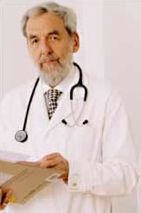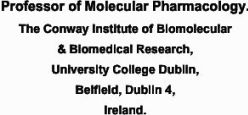Medicine
Both my parents were doctors, though my mother did not practice after her marriage to my father. I admired the achievements of my father, who as a chest physician had battled against tuberculosis, a disease that was endemic in Ireland in the nineteen-forties and fifties. However, I cannot say with honesty that my parents being doctors was the dominant influence in my choice of career. In truth the opportunity to escape the oppressive confines of Castleknock College a year ahead of schedule by sitting the entrance examination to the Royal College of Surgeons in Ireland, where incidentally both my parents had been students, was so irresistible as to be a major factor in my becoming a doctor. But first I had to escape dentistry in which I was enrolled, a career that my father believed then offered better fiscal opportunities than medicine.
Cardiology
When I decided to leave general practice after a year of rewarding experience in Birmingham to become a specialist, I first studied gastroenterology in Dudley Road Hospital (now the City Hospital) under Alex Paton, a remarkable figure, who not only taught me the principles of specialisation and medical research but also encouraged me to write and to take up medical journalism. In studying for the Membership examination, I came under the influence of John McKinnon, a superb clinical cardiologist, and thenceforth I devoted myself to this discipline.
Research
I developed an interest in research when I worked with the late Douglas Thornes on protease inhibitors in cancer and published my first major paper “Inhibition of Antiplasmin and Fibrinolytic Effect of Protease in Patients with Cancer” in the Lancet in 1969. I became interested in hypertension research in Dudley Road Hospital and when I returned to Dublin I established the Blood Pressure Unit in 1979 in collaboration with Professor Kevin O’Malley in the Charitable Infirmary and the Royal College of Surgeons in Ireland. From the outset the Unit concentrated on research into the pharmacology of blood pressure lowering drugs, particularly in the elderly, and on the development of blood pressure measuring techniques, especially techniques of ambulatory blood pressure measurement. The publications and presentations from the Blood Pressure Unit (and latterly the ADAPT Centre), giving details of over 600 papers published in peer-reviewed journals together with numerous editorials, letters, books, book chapters, general and educational articles and abstracts as well as the scientific and educational presentations made since 1988 in many countries around the world may be found in other sections of this website.
Medical History
Another logical extension of enquiry, or so it seems to me, is a study of the past. By standing on the shoulders of earlier researchers we can view the pathways to the future. This realisation led me inevitably to study and write about the history of medicine. I have included, therefore, a section on my foray into this subject, which led me to write a number of papers and books. Again a website is ideally suited to not only to documenting these productions, but also to providing illustrative material on the past.
Journalism and publishing
The presentation of communication in medicine, if I may call it such led me inevitably to the editorship of two journals – the Journal of the Royal Colleges of Physicians and Surgeons (for two terms) and the Irish Medical Journal and probably to founding two presses – Black Cat Press and Anniversary Press – to publish what might be regarded by the establishment as somewhat esoteric works. Again a website allows me to archive the somewhat turbulent consequences of these activities.
Literature
It is my contention that medicine should not be divorced from the humanities, which can bring a sense of compassion and understanding to doctors distracted by the materialistic and technological demands of the present age. This activity distracted me for some pleasant and rewarding years to study literature, in particular the writings of Samuel Beckett. It led moreover to a friendship, from which arose The Beckett Country, and much of the archival material relating to this period is safely stowed for scholarship on this website.
Humanitarian activities
The practice of medicine in relatively affluent countries should not blind a doctor to the global inadequacies of medicine and the suffering of so many millions in low resource countries. Towards this end I have been involved as a member of the Board of the Center for International Health and Cooperation, which was founded in 1992 by my friend and colleague, Kevin Cahill, to promote healing and peace in countries shattered by natural disasters, armed conflicts and ethnic violence. The Center employs its resources and unique personal contacts to stimulate interest in humanitarian issues and to promote innovative educational programs and training. I am also a member of a number of WHO committees dedicated to improving the cardiovascular health of the poorer countries of the world.


